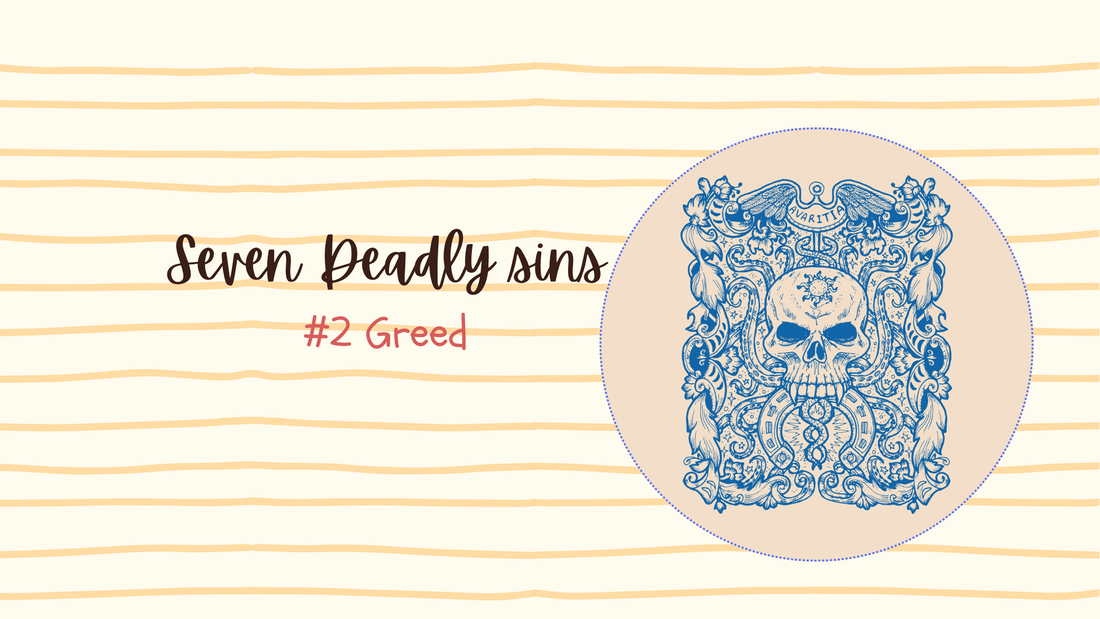
7 Deadly Sins #2 Greed: Mia and the Pile of Toys
Mia was a young girl who loved toys. She had a collection that filled her entire room—dolls, action figures, board games, stuffed animals, and more. Every time she visited a toy store with her parents, she would beg them to buy her something new, even though she already had more toys than she could play with.

One day, Mia’s school announced a toy drive for children in need. The teacher explained that some kids didn’t have any toys at all, and they would be very happy to receive even just one. “If you have toys at home that you no longer use, please bring them in,” the teacher said. “Your kindness will make another child’s day.”
When Mia heard about the toy drive, she felt a little uneasy. She loved all her toys and couldn’t imagine giving any of them away. “Why should I give away my toys?” she thought. “They’re mine! What if I want to play with them later?”
That afternoon, Mia’s mother asked her if she was planning to donate some toys to the drive. “You have so many, Mia. I’m sure you could find a few that you don’t play with anymore,” her mother said gently.
Mia frowned and shook her head. “I don’t want to give any away,” she replied. “I like all my toys.”
Question: How do you think Mia’s refusal to share her toys might affect others? Have you ever felt reluctant to share something you have?
As the toy drive approached, Mia’s friends started bringing toys to school. Some brought dolls, others brought puzzles, and a few even brought their favorite stuffed animals, all ready to be donated. Mia watched as her friends happily placed their toys in the collection box, but she still couldn’t bring herself to part with any of hers.
On the last day of the toy drive, Mia’s class had a party to celebrate all the toys they had collected. The teacher praised the students for their generosity, but Mia felt a pang of guilt. She had brought nothing. She saw the smiles on her friends’ faces as they talked about how happy they were to be helping others, and she realized that she wasn’t feeling the same joy.
That night, Mia couldn’t stop thinking about the toy drive. She thought about the children who would receive the toys and how much they would appreciate them. She remembered how happy her toys had made her when she first got them, and she imagined how happy another child would be to play with them.
Question: What do you think Mia should do now that she’s starting to feel guilty? How might sharing her toys make her feel?
The next morning, Mia made a decision. She gathered up a few of her toys—the ones she hadn’t played with in a long time—and put them in a bag. She felt a little sad at first, but then she thought about the smiles these toys would bring to other children.
When Mia arrived at school, the toy drive was already over, but she asked her teacher if she could still donate her toys. The teacher smiled and said, “Of course, Mia. It’s never too late to be kind.”

Mia placed her toys in the collection box, and to her surprise, she didn’t feel sad anymore. Instead, she felt a warm, happy feeling inside. She realized that giving to others made her feel better than keeping everything for herself. She also noticed that she didn’t miss the toys she had given away—in fact, she felt proud that she had shared them.
Moral: Greed can make us hold on to things we don’t need, but sharing with others brings happiness to both the giver and the receiver. True joy comes from kindness and generosity, not from having the most things.
